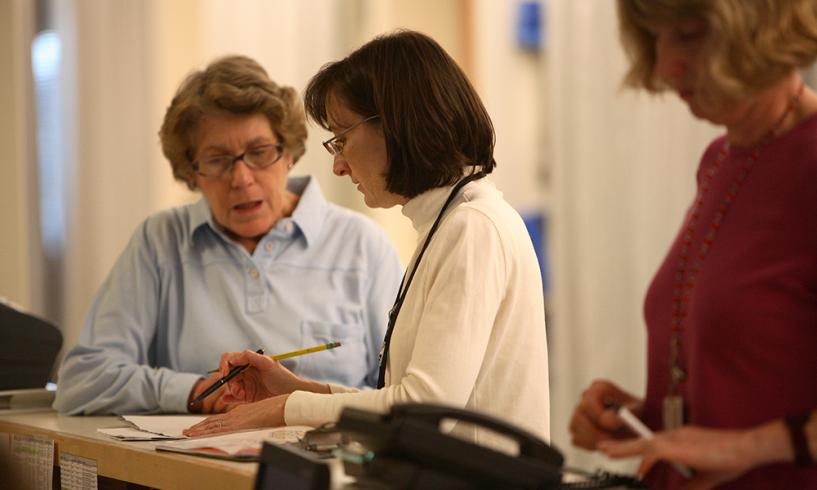Since the Institute of Medicine called attention to it in its seminal 2005 report, From Cancer Patient to Cancer Survivor: Lost in Transition, cancer survivorship has been a hot-button topic. However, in the nearly 10 years since the report was released, healthcare providers have struggled to establish cancer survivorship planning as a routine part of cancer care.
In their article in the March 2014 issue of the Oncology Nursing Forum, Lester, Wessels, and Jung attributed the fragmented work in survivorship care planning to a lack of empirical evidence and widespread professional education. They cited barriers such as issues with reimbursement, resources, time, communication, coordination of care, and evaluation of results. In short, they said, establishment of survivorship care as a distinct phase of cancer care remains a relatively new concept to most healthcare providers.
To determine the current base of knowledge about survivorship care, Lester et al. conducted a survey of 223 oncology RNs and advanced practice nurses at a comprehensive cancer center in the Midwestern United States. Their article reports the survey findings and implications for nursing.
Survivorship Care Planning and Transition
In its report, the Institute of Medicine recommended that all survivors receive a survivorship care plan. (See Figure 1 for components of the plan.) However, putting that recommendation into practice has been problematic. Lester et al. cited studies that reported issues with communication, patient needs, provider roles, and ambivalence over discharge. Primary care providers have reported that additional training and communication is needed to provide information on cancer, its treatment, and integrated care. Non-oncology physicians are concerned about patients with multiple cancer comorbidities.
Lester et al. cited studies that have show that oncology nurses are critical to the development, education, and implementation of a survivorship program. However, research is needed to determine the learning needs for oncology nurses for survivorship education.
Educational Needs of Oncology Nurses
To determine oncology nurse knowledge about cancer survivorship care, Lester et al. surveyed 223 oncology RNs and advanced practice nurses at a comprehensive cancer center in the Midwestern United States. They found that only 50% were familiar with the term survivorship care planning and only 63% could identify the components of a survivorship care plan. Additionally, 70% were uncomfortable with explaining a pathology report to patients, an essential part of the survivorship care discussion.
Participants also responded about their knowledge and comfort discussing 35 cancer symptoms and issues, as listed in the literature and the Institute of Medicine report. At least 70% felt knowledgeable about healthy lifestyle habits (e.g., skin protection, diet, exercise, fatigue). More than 50% felt knowledgeable about discussing
- Smoking cessation
- Routine cancer screening
- Chemotherapy short- and long-term side effects
- Medications, short-term effects of surgery
- Common symptoms (e.g., dental or oral care, depressions, limitations of daily activities, weight gain or loss).
Alternately, less than 50% of the nurses felt knowledgeable about
- The impact of cancer on family members and children
- Biologic agents
- Lymphedema
- Routine immunizations and vaccinations
- Osteoporosis prevention
- Short-term side effects of radiation therapy
- Long-term side effects of surgery.
Additionally, less than 34% of the nurses felt knowledgeable about
- Marital/partner relationships
- Osteoporosis screening
- Long-term side effects of bone marrow transplantation
- Employment issues during or after cancer.
Finally, no more than 25% of the nurses felt knowledgeable about
- Osteoporosis treatment
- Antiangiogenesis side effects
- Long-term side effects of bone marrow transplantation
- Genetic risks
- Fertility preservation
- Fertility after cancer treatment
- Financial challenges
- Insurance issues.
Lester et al. also noted differences in oncology nurses’ knowledge based on education, experience, age, and role. Those who were more educated (i.e., BSN, MSN, and PhD), more experienced (i.e., 16 years or more), older (i.e., aged at least 40 years) and in the roles of nurse practitioner or research nurse provided correct responses more often than other nurses.
Implications for Oncology Nurses
The authors noted that survivorship care planning requires looking at a patient’s full health picture. Oncology nurses are often specialized in their cancer type, which is ideal for the development of survivorship care planning in their specific population but may narrow their scope about broad common survivorship issues. As leaders of survivorship care, oncology RNs and APNs require a wide range of knowledge and should educate themselves about common survivorship-related symptoms and side effects and should have a repertoire of evidence-based interventions or service for referral.
Another suggestion from Lester et al. was that improved curricula are needed in nursing programs. The deficits and barriers related to the absence of targeted education significantly limit the widespread practice of cancer survivorship care, they wrote. They recommended broadening nursing education to include complex chronic symptoms, which would embrace all program interests and cover common comorbid conditions (e.g., cardiac and pulmonary diseases, cancer, diabetes).
Finally, although nurse practitioners are the primary providers of survivorship care planning, RNs can participate by helping with care plans, compiling information and checking it for accuracy, developing care plans based on patient issues, and discussing care plans with APNs or physicians to validate referral orders. RNs can also review care plans with patients and document progress or changes during subsequent visits.
For more information about nurses’ knowledge of survivorship care planning, refer to the full article by Lester et al.
Five-Minute In-Service is a monthly feature that offers readers a concise recap of full-length articles published in the Clinical Journal of Oncology Nursing or Oncology Nursing Forum (ONF). This edition summarizes “Oncology Nurses’ Knowledge of Survivorship Care Planning: The Need for Education,” by Joanne L. Lester, PhD, CNP, AOCN®, Andrew L. Wessels, BA, and Yoonsuh Jung, PhD, which was featured in the March 2014 issue of ONF. Questions regarding the information presented in this Five-Minute In-Service should be directed to the ONF editor at ONFEditor@ons.org. Photocopying of this article for educational purposes and group discussion is permitted.






